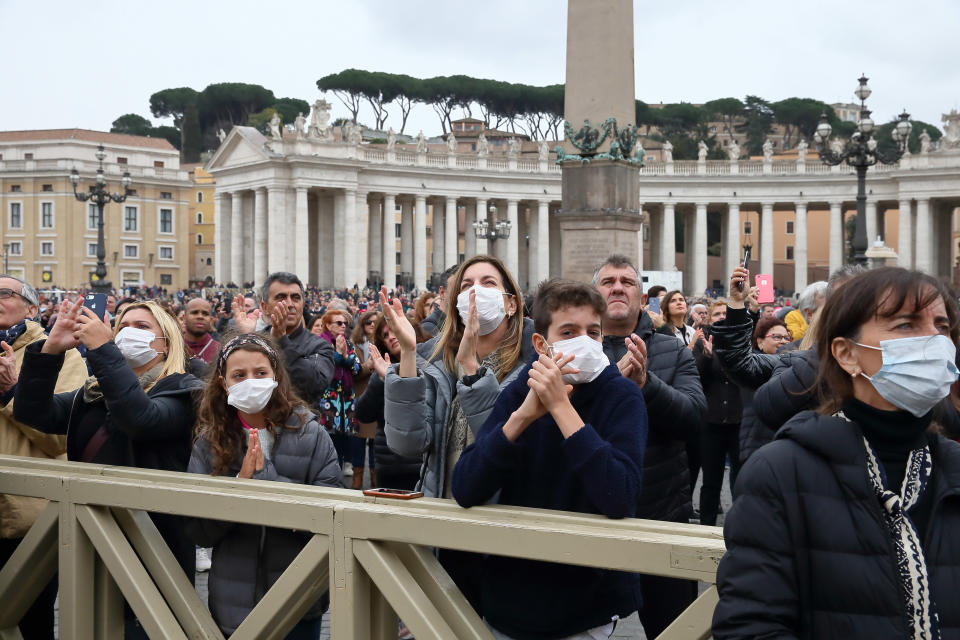How Britain's response to the coronavirus outbreak compares to the EU

Europe has become one of the main areas in the grip of a coronavirus outbreak as cases taper off in China.
Italy is one of the worst affected countries, with roughly a similar amount of cases as South Korea and Iran, the worst hit outside of China – which is where the virus started.
Globally, there are more than 111,000 confirmed cases, according to US university Johns Hopkins, with just over 60,000 recoveries. 80,000 of the confirmed cases were in China.
European states continue to try and tackle the coronavirus outbreak as the UK announced 319 cases and its fifth death on Monday.
The government has come in for some criticism over its handling of the outbreak, with Boris Johnson being criticised for not holding an emergency Cobra meeting until March.
But it has published an action plan and the Department for Health and Social Care has given daily updates of the number of cases in the UK.
Ministers have also embarked on an awareness campaign about good hygiene, with Johnson reiterating the importance of washing hands regularly.
An update following PM @BorisJohnson's visit to Public Health England @PHE_uk to meet those working on coronavirus. pic.twitter.com/IfRx2CzwX9
— UK Prime Minister (@10DowningStreet) March 1, 2020
The UK described its four-step plan to fight the virus as contain, delay, research and mitigate.
It has also urged the public to stop the spread of misinformation about the virus – with a number of conspiracy theories linked to the virus having been aired – and checking on elderly or vulnerable relatives and friends.
It has also issued guidance to people who have recently visited high-risk places, with visitors to Iran, Hubei province in China, affected areas under lockdown in Italy and designated special care zones in South Korea being told to stay indoors and avoid contact with other people even without symptoms.
Italy
With more than 7,300 confirmed cases, Italy is attempting to introduce a raft of new rules designed to stop the spread in its northern regions – bringing 16 million people into containment.
The plan was leaked to newspaper Corriere della Sera at the weekend, which reportedly include stopping people entering or leaving the affected areas.
Tourists can leave places under lockdown, like Milan, but residents in the affected areas were left confused at the extent of the measures and unsure of when they will take effect from.
Restaurants across Italy are expected to keep customers three feet away from each other while major tourist destinations like museums and archaeological sites are being shut down.
Bars and restaurants in parts of northern Italy can only open between 6am and 6pm, while schools, universities, nightclubs, gyms and swimming pools have been shut.
Serie A games – the top division in Italy’s football league pyramid – have been played behind closed doors.
France
French president Emmanuel Macron suggested people in France limit visits to elderly people, who are considered to be more vulnerable to the virus.

Gatherings of more than 1,000 people are banned, some zones have restricted any type of public event, some schools have been shut and kissing has been discouraged, it has been reported.
The government has also capped the price of hand sanitiser gel at €3 (£2.60).
Spain
Just over 900 infections have been reported in Spain, where the government is considering new containment measures.
Some public events have been cancelled while all elderly recreational centres have been closed.
Germany
Germany has recorded more than 1,000 cases but it has not decided to enforce quarantining areas. Some work places have closed temporarily when an employee confirms an infection.

 Yahoo News
Yahoo News 